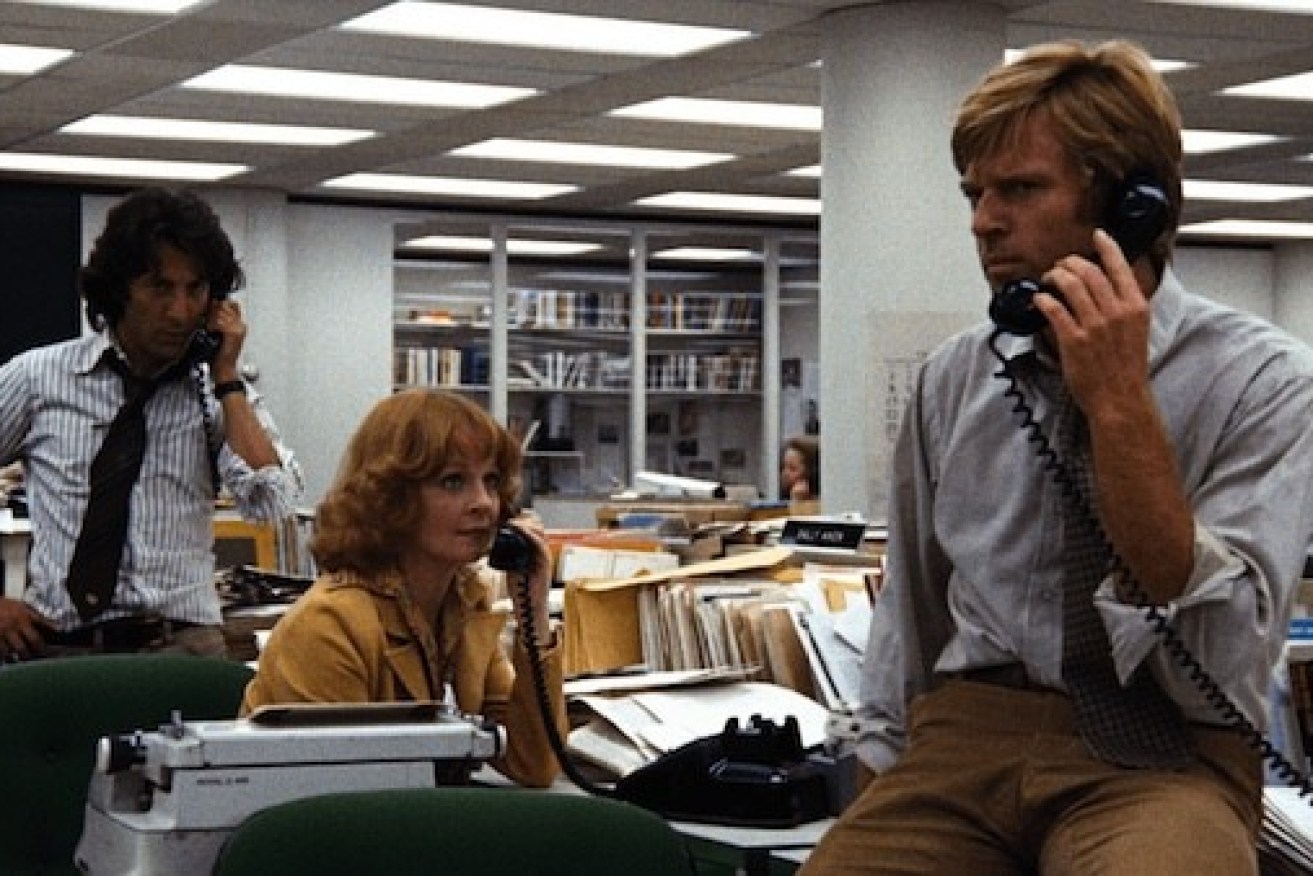Who’s speaking please? New laws set to redefine journalist and source
Attorney-General Shannon Fentiman has opened consultation on Queensland’s planned shield laws, including who should be protected from prosecution and under what circumstances.

A scene from the movie 'All The President’s Men', based on the newspaper reporting of the Watergate scandal and the relationship between journalists and sources. (Supplied)
Labor has long promised to introduce shield laws and faced renewed pressure to act when a television reporter faced punishment for refusing to reveal the source of information about an impending police raid.
Releasing a discussion paper today, Attorney-General Shannon Fentiman declared “a free, independent and effective media is crucial for a strong democracy”.
“Journalists need to be protected when doing their jobs and Queenslanders need to be protected if they come forward with important information,” Fentiman said.
But how to do that remains unclear, and Fentiman said any changes must strike a balance between protecting the media and public, and allowing courts to act in the interests of justice.
“These are complex laws, and we need to get them right with the strongest safeguards,” she said.
The scope of the laws will be an issue. The discussion paper notes that the nature of the media has changed, from traditional outlets to “online newspapers to blog sites and social media feeds, and by a wide range of publishers, from large media organisations to individuals”.
Even defining a journalist might be tricky.
“The traditional concept of a journalist is a professional employed by a media organisation to produce content for publication by that organisation,” the paper states.
“However, as the nature of journalism has evolved it is recognised that freelancers, academics, citizen journalists, and others play a role in public interest journalism. This shift raises the complex issue of what is journalism, and in turn who should be protected by shield laws.
“A broad definition of journalist recognises that news may be presented in a variety of styles and formats using a range of technologies, and aims to apply equal protection to all styles, mediums, and technologies. However, a broad definition may raise concerns about shield laws applying to individuals who are not part of a community of practice and are not subject to common ethical or professional standards.”
Under Queensland’s existing Public Interest Disclosure Act, a journalist is defined as a person engaged in the occupation of writing or editing material intended for publication in the print or electronic news media.
“The shift away from traditional forms of news has also changed the way journalists are employed, and raises complex issues regarding whether shield laws should be extended beyond the journalist to persons they work with or who engage them,” the paper states.
“In the course of investigating issues and preparing information for publication in a news medium, it may be necessary for a journalist is disclose the identity of a source, or information that could identify the source, to a manager, editor, employer, or contracting party. The application of shield laws to persons associated with the work of the journalist may be necessary to ensure the protection of the source’s identity.”
The paper also raises the question of how to define a source, and in what circumstances, and from whom, they and the recipient of their information should be protected. It is not the first time there has been consideration of legal changes in this area.
The government last year abandoned changes that would have banned people from publishing corruption and misconduct allegations against political candidates during election campaigns – or see them jailed for six months if they made it public.
The Crime and Corruption Commission had sought the changes, ostensibly to protect the sanctity of its investigations and the electoral process, but was opposed by groups including the journalists’ union.












